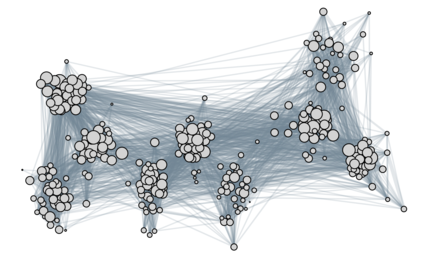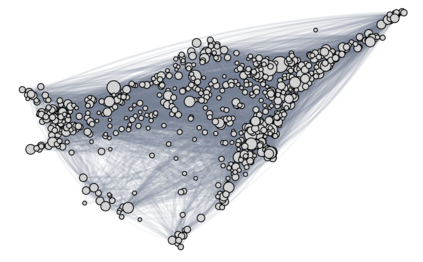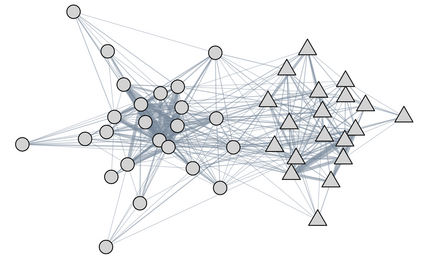Positive and negative relations play an essential role in human behavior and shape the communities we live in. Despite their importance, data about signed relations is rare and commonly gathered through surveys. Interaction data is more abundant, for instance, in the form of proximity or communication data. So far, though, it could not be utilized to detect signed relations. In this paper, we show how the underlying signed relations can be extracted with such data. Employing a statistical network approach, we construct networks of signed relations in four communities. We then show that these relations correspond to the ones reported in surveys. Additionally, the inferred relations allow us to study the homophily of individuals with respect to gender, religious beliefs, and financial backgrounds. We evaluate the importance of triads in the signed network to study group cohesion.
翻译:积极和消极关系在人类行为和塑造我们所生活的社区方面起着关键作用。尽管这些关系很重要,但关于已签关系的数据很少,而且通常通过调查收集。互动数据比较丰富,例如,以近距离或通信数据的形式收集。不过,迄今为止,这些数据无法用来探测已签关系。在本文件中,我们用这些数据来说明如何提取所签关系的基础。我们采用统计网络方法,在四个社区建立已签关系网络。然后,我们显示这些关系与调查所报告的关系相对应。此外,推断关系使我们能够研究个人在性别、宗教信仰和金融背景方面的同质性。我们评估了三合一在已签网络中研究群体凝聚力的重要性。












